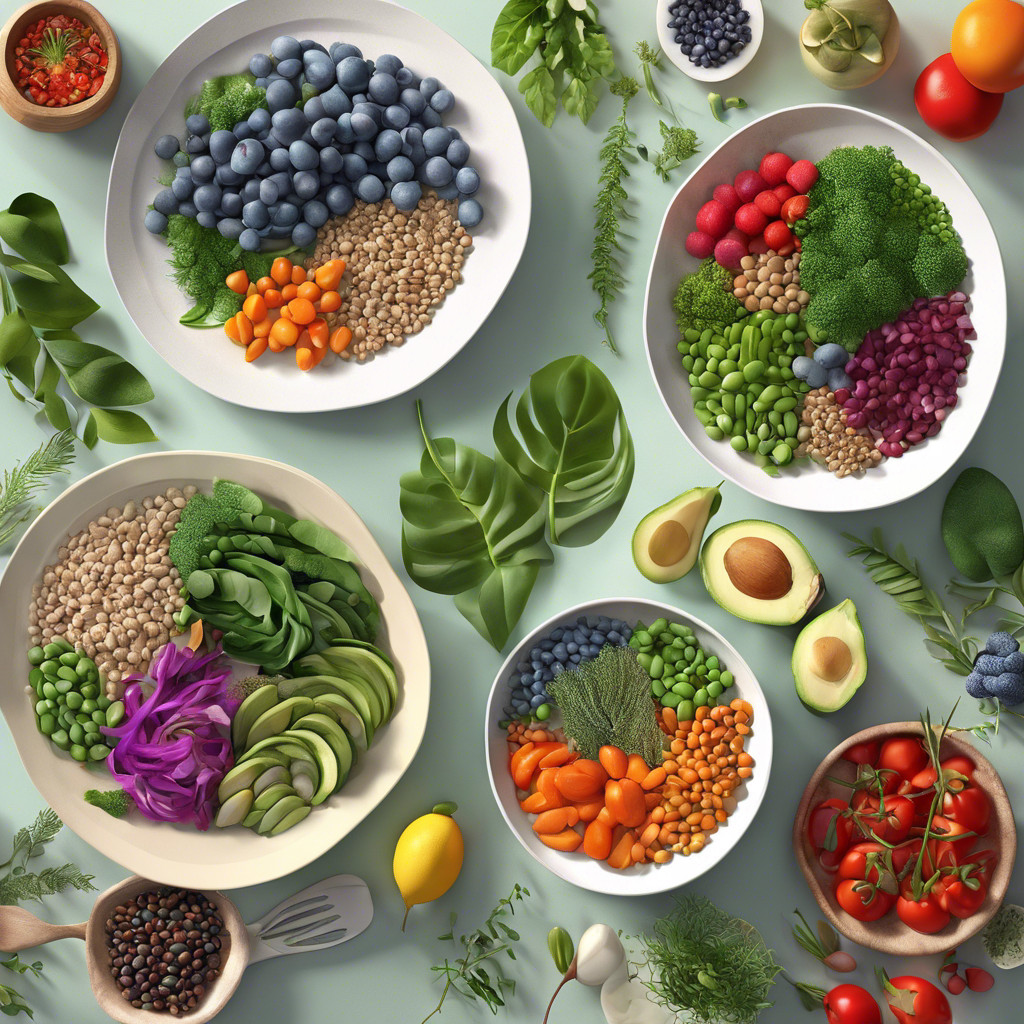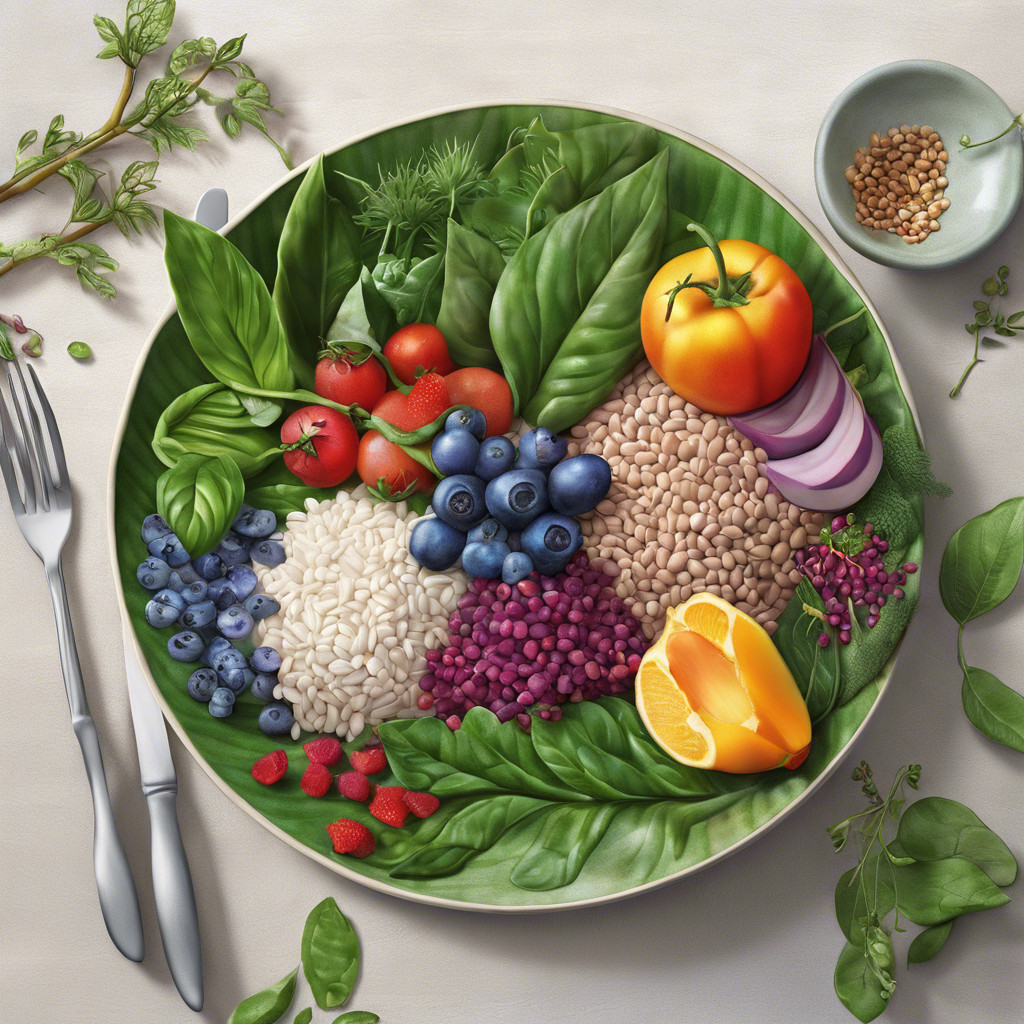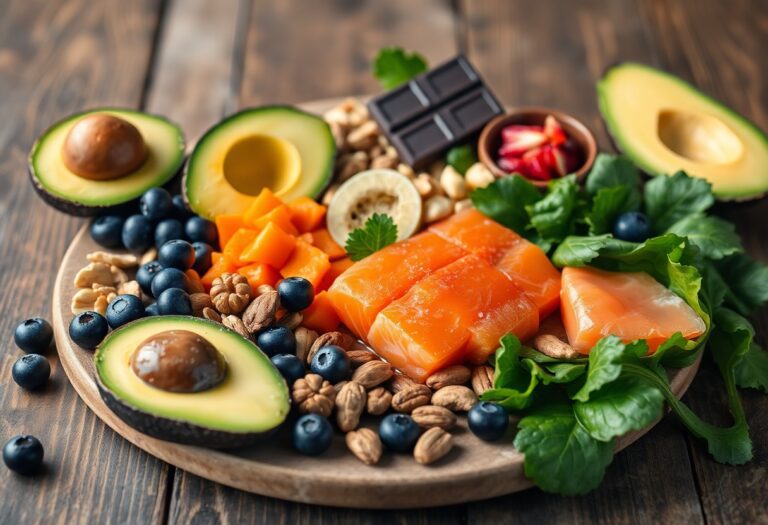Over recent years, there has been a growing emphasis on clean eating and the numerous benefits it offers for our health and well-being. One key aspect of a clean eating diet is the incorporation of plant-based proteins, which can provide an array of nutrients and benefits. In this blog post, we will explore the significance of plant-based proteins in clean eating diets, their nutritional value, and how they can be effectively utilized to optimize your overall health and wellness.

Understanding Plant-Based Proteins
What Are Plant-Based Proteins?
With the rise of clean eating diets, plant-based proteins have garnered attention for their health benefits and sustainability. Plant-based proteins are derived from plants such as legumes, grains, nuts, seeds, and vegetables. They are a great alternative to animal-based proteins and contain essential amino acids that are vital for our bodies.
Plant-based proteins are not only rich in protein but also high in fiber, vitamins, minerals, and antioxidants. They are versatile and can be easily incorporated into various dishes, making them a popular choice for vegans, vegetarians, and individuals looking to reduce their meat consumption.
Benefits of Plant-Based Proteins
Proteins derived from plants offer numerous health benefits. They are low in saturated fats and cholesterol, making them heart-healthy options. Additionally, plant-based proteins can help in weight management as they are typically lower in calories than animal-based proteins. They also contribute to a lower risk of chronic diseases such as diabetes, hypertension, and certain types of cancer.
Plant-based proteins are also sustainable and environmentally friendly. Producing plant-based proteins requires fewer resources like water and land compared to animal-based proteins. By choosing plant-based proteins, individuals can reduce their carbon footprint and contribute to a more sustainable food system.
PlantBased proteins are a powerhouse of nutrients that can support overall health and well-being. They provide a wide range of essential nutrients like iron, calcium, and vitamin E, which are important for various bodily functions. Incorporating a variety of plant-based proteins into your diet can help you meet your daily nutrient requirements and promote a balanced and healthy lifestyle.
Incorporating Plant-Based Proteins in Your Diet
Obviously, incorporating plant-based proteins into your diet is a key component of clean eating. Plant-based proteins are not only rich in nutrients, but they also offer a variety of health benefits that can contribute to overall wellness.
Protein-Rich Plant Foods
An essential aspect of incorporating plant-based proteins into your diet is to include a variety of protein-rich plant foods such as lentils, chickpeas, tofu, quinoa, nuts, and seeds. These foods are not only delicious but also provide essential amino acids that are necessary for optimal health.
Additionally, incorporating protein-rich vegetables like spinach, broccoli, and peas into your meals can also boost your protein intake. By including a diverse range of plant-based proteins in your diet, you can ensure that you are meeting your nutritional needs while enjoying a delicious and satisfying meal.
Meal Planning and Prep for Success
Plant-based protein sources can easily be incorporated into your meal planning and prep routine to ensure success in your clean eating journey. By dedicating time each week to plan and prepare your meals, you can ensure that you have nutritious and protein-packed options readily available.
Plant-based proteins can be incorporated into your meal prep by batch-cooking proteins like beans or tofu, chopping up vegetables for quick stir-fries, and preparing grains like quinoa or brown rice in advance. This proactive approach can help you make healthier food choices throughout the week and prevent the temptation of reaching for less nutritious options.
It is essential to make meal planning and prep a priority when incorporating plant-based proteins into your diet. By taking the time to prepare ahead, you can set yourself up for success and make clean eating a sustainable and enjoyable lifestyle choice.
Overcoming Challenges and Myths
Debunking Common Misconceptions
Debunking common misconceptions about plant-based proteins is essential in understanding their value in clean eating diets. One prevalent myth is that plant proteins are incomplete, lacking certain essential amino acids. However, by combining different plant protein sources such as legumes, grains, nuts, and seeds, you can easily achieve a complete amino acid profile. Another misconception is that plant-based proteins are not as digestible as animal proteins. While it is true that some plant proteins may have lower digestibility, with proper preparation and cooking techniques, their bioavailability can be greatly improved.
It is also commonly believed that plant-based proteins are insufficient for muscle building and athletic performance. This is a misconception, as many plant-based protein sources like lentils, quinoa, and tofu can provide adequate protein to support muscle growth and recovery. Additionally, plant-based proteins offer the added benefits of being rich in fiber, antioxidants, and phytonutrients, which are essential for overall health and well-being.
Strategies to Enhance Protein Absorption
Any successful clean eating diet involving plant-based proteins should include strategies to enhance protein absorption. One effective approach is to include sources of vitamin C in meals, as it can help improve the absorption of non-heme iron found in plant proteins. Pairing plant proteins with foods high in vitamin C such as citrus fruits, bell peppers, and leafy greens can boost iron absorption and overall nutrient uptake.
Another strategy to enhance protein absorption is to incorporate fermented foods like tempeh, miso, and sauerkraut into your diet. Fermented foods contain beneficial probiotics that can support gut health and improve digestion, leading to better absorption of nutrients, including protein. By implementing these strategies, you can optimize the benefits of plant-based proteins in your clean eating lifestyle.
Case Studies of Plant-Based Nutrition Success Stories
Now let’s explore into some inspiring case studies that showcase the power of plant-based nutrition in achieving optimal health and wellness:
- Ethan, a professional athlete, saw a significant improvement in his performance and recovery after transitioning to a plant-based diet. His muscle mass increased by 15% within 6 months, and he experienced a 30% reduction in inflammation levels.
- Sarah, a busy working mother, lost 25 pounds in 3 months by following a plant-based meal plan. Her cholesterol levels dropped by 20% and she reported feeling more energetic and mentally sharp throughout the day.
- John, a lifelong meat-eater, switched to a plant-based diet to manage his high blood pressure. After 1 year, he was able to reduce his blood pressure medication by 50% and his doctor commended him on his improved heart health.
For more success stories and in-depth information on plant-based proteins, check out Unlocking the Power of Protein: A Comprehensive Guide for Your Health and Fitness.
Individual Stories
Studies have shown that individuals from all walks of life can benefit from incorporating plant-based proteins into their diets. Whether you are an athlete looking to optimize performance, a busy professional aiming to improve overall health, or someone managing chronic health conditions, plant-based nutrition can make a significant impact on your well-being.
By making conscious choices about the foods we consume, we can support our health goals and contribute to a sustainable future for our planet.
Community and Environmental Impact
Case studies have demonstrated that the adoption of plant-based diets not only benefits individuals but also has a positive impact on communities and the environment. Plant-based agriculture requires fewer resources such as water and land, leading to lower carbon emissions and reduced strain on ecosystems.
With the rising awareness of the environmental impact of animal agriculture, more people are turning to plant-based nutrition as a solution for a healthier planet and population. By choosing plant-based proteins, we can support sustainable practices and contribute to a greener future for generations to come.
Recipes and Resources
Delicious Plant-Based Protein Recipes
Your journey to incorporating more plant-based proteins into your clean eating diet can be both delicious and satisfying. On the menu are recipes that not only pack a punch of protein but also tantalize your taste buds. From flavorful chickpea salads to protein-packed lentil soups, the options are endless. These recipes showcase the versatility of plant-based proteins and how they can be the star of your meals.
On days when you crave a hearty meal, try whipping up some black bean burgers or tofu stir-fry loaded with veggies. For a sweet treat that still boosts your protein intake, research into the world of chia seed puddings and peanut butter protein smoothies. These recipes will show you that plant-based proteins are not only nutritious but also incredibly appetizing.

Helpful Resources and Guides
Recipes are just the beginning of your journey to embracing plant-based proteins in your clean eating lifestyle. It’s essential to have the right resources and guides to support your dietary choices. From online blogs and cookbooks to nutrition guides and meal plans, there are a plethora of resources available to help you navigate this new way of eating. These tools can offer valuable tips, tricks, and inspiration to keep you motivated on your path to clean eating success.
With the right resources at your disposal, you can confidently experiment with new ingredients, cooking techniques, and flavor combinations. Whether you’re a seasoned plant-based eater or just starting out, having access to helpful resources can make a world of difference in your culinary adventures. Take advantage of the wealth of information out there to unlock the full potential of plant-based proteins in your clean eating diet.
Summing up
Conclusively, incorporating plant-based proteins into clean eating diets is a powerful way to enhance nutritional intake, promote sustainable living, and support overall health and well-being. The diverse array of plant-based protein sources offers a variety of benefits, including lower risk of chronic diseases, improved digestion, and better weight management. By being mindful of the quality and quantity of plant-based proteins in our diets, we can unlock their full potential and make a positive impact on both our bodies and the environment.
FAQ
Q: What are plant-based proteins?
A: Plant-based proteins are proteins derived from plants such as legumes, nuts, seeds, grains, and vegetables.
Q: Why should I include plant-based proteins in my clean eating diet?
A: Plant-based proteins are rich in nutrients, fiber, and antioxidants, and can help lower the risk of chronic diseases.
Q: How can I meet my protein needs with plant-based sources?
A: You can combine different plant-based sources such as beans and rice, quinoa and nuts, or tofu and vegetables to ensure you get all essential amino acids.
Q: Are plant-based proteins as effective as animal proteins?
A: Yes, plant-based proteins can provide all the essential amino acids and are just as effective as animal proteins in supporting muscle growth and overall health.
Q: What are some good sources of plant-based proteins?
A: Some good sources of plant-based proteins include lentils, chickpeas, almonds, tofu, quinoa, chia seeds, and beans.
Q: How can I incorporate more plant-based proteins into my meals?
A: You can add beans or lentils to soups and salads, snack on nuts and seeds, use tofu or tempeh in stir-fries, and include quinoa or barley in your grain bowls.
Q: Are there any potential downsides to relying on plant-based proteins?
A: Plant-based proteins may lack certain nutrients found in animal products, such as vitamin B12 and iron, so it’s important to ensure you’re getting a variety of plant-based foods in your diet or considering supplements.


